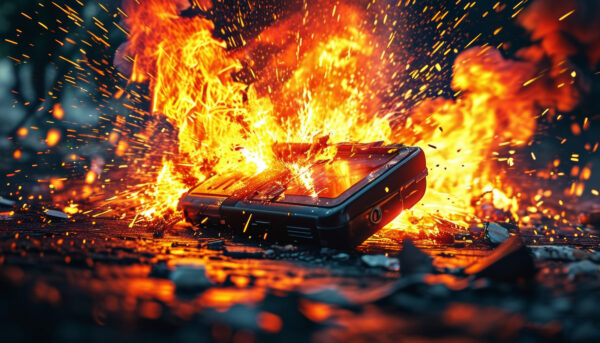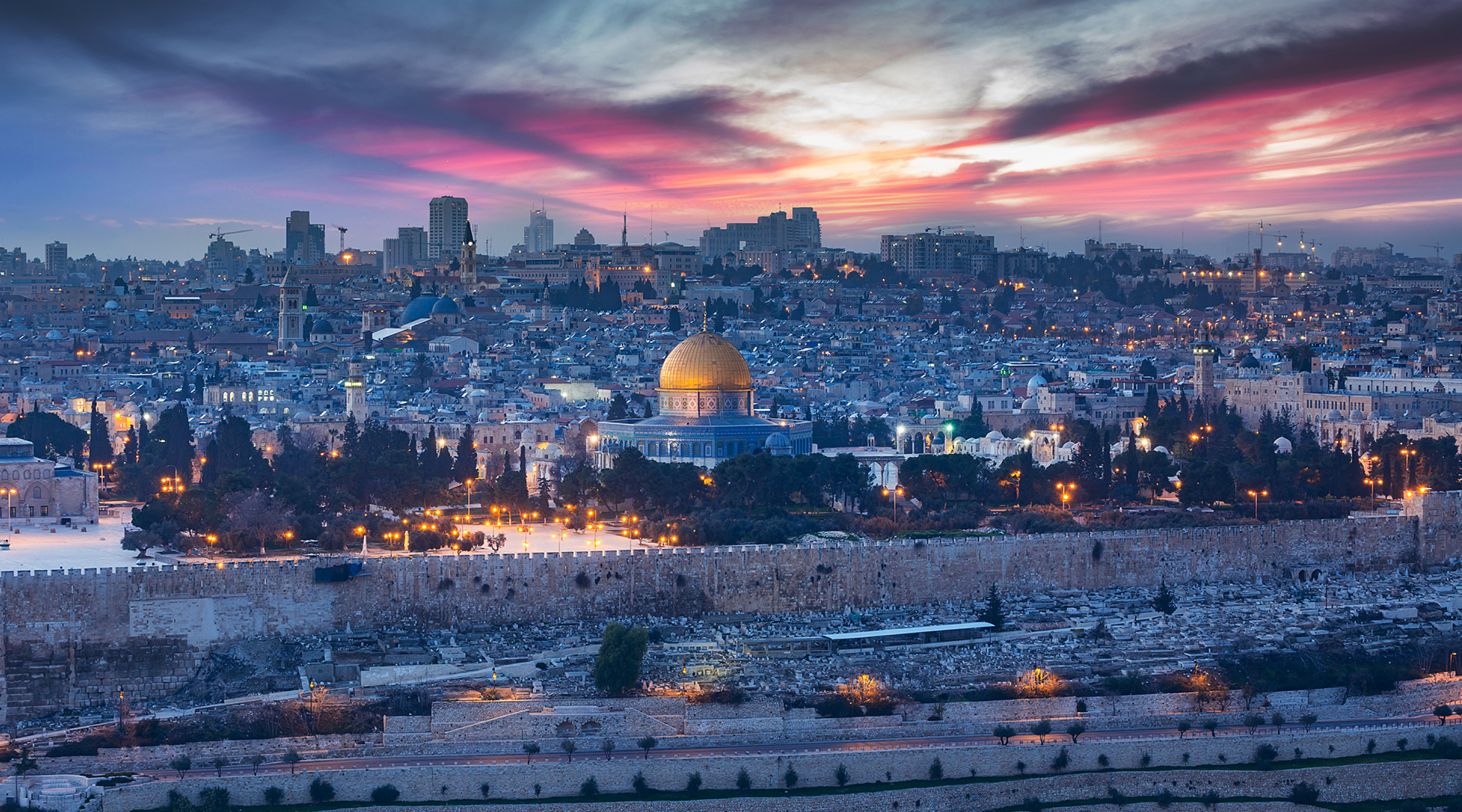
What do pagers and walkie-talkies have in common? Not only do both devices permit users to communicate with one another, when modified by Israel, they can also send an explosive message to one’s enemies.
On Tuesday, September 17, pagers used by Hezbollah terrorists exploded throughout Lebanon and Syria, leaving 12 dead and approximately 4,000 wounded, including Iran’s ambassador to Lebanon, who “lost one eye and suffered serious injury to the other when a pager he was carrying exploded” (JNS).
Then on Wednesday, September 18, “Lebanon’s health ministry said 14 people were killed and 450 wounded” when Hezbollah’s walkie-talkies exploded (Axios).
World Israel News reports that “Ronen Bergman, who writes for the New York Times and Yediot Ahronoth, says the number of people killed by the beeper explosions is higher than the reported 12 yesterday and 14 today. ‘The estimation is that there are many dozens of dead, if not more,’ he said.”
“The Lebanese Civil Defense. . . stated it was operating to extinguish the fires that had broken out following the explosions in some 60 shops and homes, 15 vehicles, motorcycles, and two fingerprint devices. It added that ambulances were transferring the wounded to hospitals throughout the country. . . . According to unconfirmed reports, Hezbollah has told its operatives to distance itself from communication devices. Unofficial reports also claimed that Hezbollah told its members to dispose of devices containing a lithium battery or that are connected to the internet. Additional unconfirmed reports claimed that lithium batteries for solar energy storage had detonated and that some houses were on fire.” (The Jerusalem Post).
“According to reports, as little as one to two ounces of the explosive material was implanted adjacent to the battery in each pager, along with a switch that could be used to detonate the explosives” (The Jerusalem Post).
“The Hezbollah-affiliated Lebanese newspaper Al-Akhbar exposed the extent of the damage in its editorial, calling it one of the most severe blows dealt to the terror organization since it began launching attacks on Israel last October. ‘In just one minute, the enemy managed to deliver the harshest blow to Islamic resistance since the onset of the conflict,’ the article stated, adding it was ‘an exceptional security operation in terms of the ability to reach targets and means, and in demonstrating elements of Israeli technological and intelligence superiority’” (The Jerusalem Post).
Telegraph reports that “Hezbollah has vowed Israel will be ‘uniquely punished’ after [the] second wave of explosive booby fire traps struck the terror group across Lebanon.” “Revenge is inevitable,” a senior Hezbollah official said. “We will confront the enemy with a new approach so that they know we are a people who will not retreat,” said Seyed Hashem Safiuddin, without providing any details. “The resistance tells Netanyahu that we are present and our capabilities remain unharmed,” he added.
Israel has not taken credit for either attack against Hezbollah, but The Jerusalem Post independently confirmed significant details related to the operation and has concluded that the Mossad and IDF intelligence were involved.
According to two sources, “Israel’s goal in the second wave of attacks was to increase paranoia and fear in Hezbollah’s ranks, in an attempt to press the militia’s leadership to change its policy regarding the conflict with Israel. . . . to convince Hezbollah that it is in its interest to disconnect itself from Hamas and cut a separate deal for ending the fighting with Israel regardless of a ceasefire in Gaza.” The two sources added “that the decision to conduct the second attack was also driven by the assessment that Hezbollah’s investigation into the pager explosions would likely expose the security breach in the walkie-talkies” (Axios).
The attacks against Hezbollah come on the heels of US special envoy Amos Hochstein’s visit to Israel on Monday, September 16. When “Hochstein visited Israel on Monday, Netanyahu, Israeli defense minister Yoav Gallant and other senior officials were engaged in hours of security consultations around the issue of the operation being potentially compromised. When they met with Hochstein, they didn’t even give him a hint about what was going on behind the scenes, a U.S. official said” (Axios).
Axios also reports, “After the explosions on Wednesday, Israeli defense minister Yoav Gallant said in a visit to an Israeli Air Force base that ‘the center of gravity is moving from Gaza to the north through the diversion of resources and forces. We are opening a new phase in the war.’”
“Israel Defense Forces Chief of Staff Gen. Herzi Halevi held meetings at the northern command’s headquarters and approved the updated operational plans for Lebanon, the IDF said. ‘We are determined to create the security conditions that allow the return of our citizens to their homes with a high level of security, and we are ready to do whatever it takes to bring these things about. We have many capabilities that we have not yet activated,’ Halevi said in a statement” (Axios).
Breitbart reports,
- Israeli Prime Minister Benjamin Netanyahu posted a mysterious ten-second video on Wednesday, the second day of a series of attacks targeting Hezbollah terrorists throughout Lebanon through their communications devices. Netanyahu [said] in Hebrew: ‘I already said, we will return the residents of the north in safety to their homes. And that is exactly what we will do.’”
- On Tuesday, Israel’s security cabinet decided to expand the current war goals — destroying Hamas, freeing the hostages, and ensuring Gaza can never threaten Israel again — to include returning northern residents to their homes. . . . Hezbollah, which is backed by Iran, and which is occupying southern Lebanon illegally, has launched thousands of rockets, anti-tank missiles, and drones at Israel, unprovoked, since October.
- Israel has responded in kind, but has been forced to evacuate some 60,500 residents from 74 northern towns — both Jewish and Arab.
- Diplomatic efforts, led by the U.S., have failed to convince Hezbollah to stop attacking Israel and to withdraw north of Lebanon’s Litani River, in accordance with the agreement that ended the Second Lebanon War in 2006.
- Israel has said that it will use military force to push Hezbollah away from the border if necessary. Hezbollah, armed by Iran and its allies, is thought to be a far stronger force than Hamas, but Israelis broadly support a war against it.”
Al Arabiya reports, The United Nations High Commissioner for Human Rights, Volker Turk, described the blasts as “shocking,” and said their impact on civilians was “unacceptable.” “There must be an tindependent, thorough and transparent investigation as to the circumstances of these mass explosions,” he said. “Those who ordered and carried out such an attack must be held to account.”
Blessors of Israel is closely monitoring this developing story. Please pray for Israel and her people at this critical time.
by Dr. Matthew Dodd | September 18, 2024
